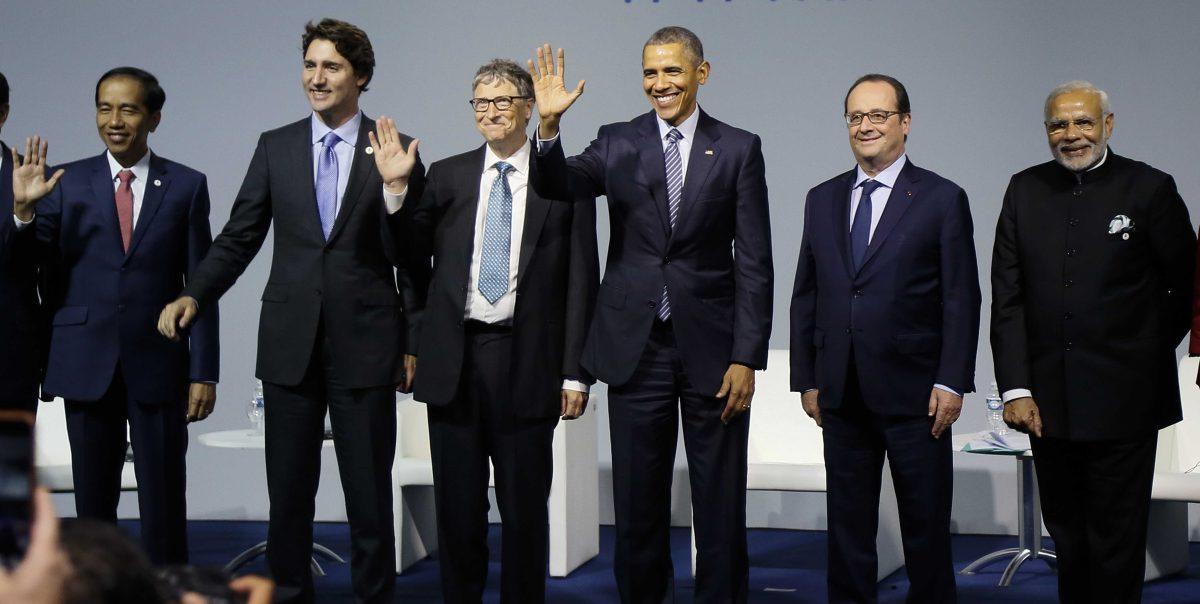Compared to planets, humans are fairly insignificant. Every year, the public is spoon fed statistics implicating our role in a rapidly heating Earth. Though intimidating at first glance, most of these statistics are disproved with simple science.
Yesterday, more than 140 world leaders gathered in Paris for a two-week conference on climate change. This conference discusses emissions reductions and their effects on the world.
Limiting emissions is a fantastic idea but not for preventing rapid climate change. Emissions have a harmful effect on the human respiratory system, but they’re just a drop in the bucket regarding climate change.
People are quick to point fingers due to our incredible rate of atmospheric carbon dioxide. The amount of atmospheric carbon dioxide has grown to an unprecedented level, but so has industry. We are continuously manufacturing, so it only makes sense carbon dioxide levels has risen.
However, is carbon dioxide that bad for the environment? Contrary to popular belief, most of the greenhouse effect is due to water vapor. Former meteorologist Brian Sussman estimates .9 of 1 percent of the greenhouse effect is due to humanity.
Global warming extremists conceded other factors greatly outweigh carbon dioxide in temperature impact. The main factors contributing to global climate change relate to solar activity, like albedo, volcanic eruptions and changes in Earth’s axis.
On June 15, 1991, Mount Pinatubo erupted, spewing an estimated 20 million tons of sulfur dioxide and ash into the atmosphere. This massive outpouring of gasses may affect climate patterns for years.
Humans have a trivial effect on climate change compared to the environment.
All things considered, the Earth is heating up. Relative to the last 100,000 years, the Earth is the hottest it’s been. However, Earth has been around a lot longer than 100,000 years. Using proxy data, scientists have estimated the Earth has been as hot as it is now 4 times in the past 425,000 years.
The Earth goes through phases. We have ice ages and interglacial ages. The Earth has been around for more than 4.5 billion years, and everything has run smoothly. The introduction of humans doesn’t endanger the Earth.
Humans are trivial in the grand scheme of things. We are tiny beings living in a large world, and it’s flattering to think we have a large effect — but we don’t.
We should live green for the sake of ourselves rather than the environment. However, now is not the time to worry about such matters. With Islamic State growing as a potential threat, Syrian refugees wandering with nowhere to go and an upcoming presidential election, we don’t have time to worry about going green.
People face evident danger by existing in today’s world. Worrying about the environment alone would be a luxury, but the inconvenient truth is we face much greater threats.
In an ideal world, it would be great to dedicate some resources to promote environmental well-being, but we don’t have the time or resources. Humans’ effects on climate change aren’t drastic or urgent enough to require immediate solutions.
Kain Hingle is a 19-year-old psychology sophomore from Mandeville, Louisiana. You can reach him on Twitter @kain_hingle.
Head to Head: Climate Change is not as important as other priorities
By Kain Hingle
November 30, 2015
From the left, President of Indonesia Joko Widodo, Canadian Prime Minister Justin Trudeau, Microsoft CEO Bill Gates, US President Barack Obama, French President Francois Hollande and Indian Prime Minister Narendra Modi attend the ‘Mission Innovation: Accelerating the Clean Energy Revolution’ meeting at the COP2, United Nations Climate Change Conference, in Le Bourget, north of Paris, Monday, Nov. 30 2015. (Ian Langsdon, Pool photo via AP)
More to Discover








